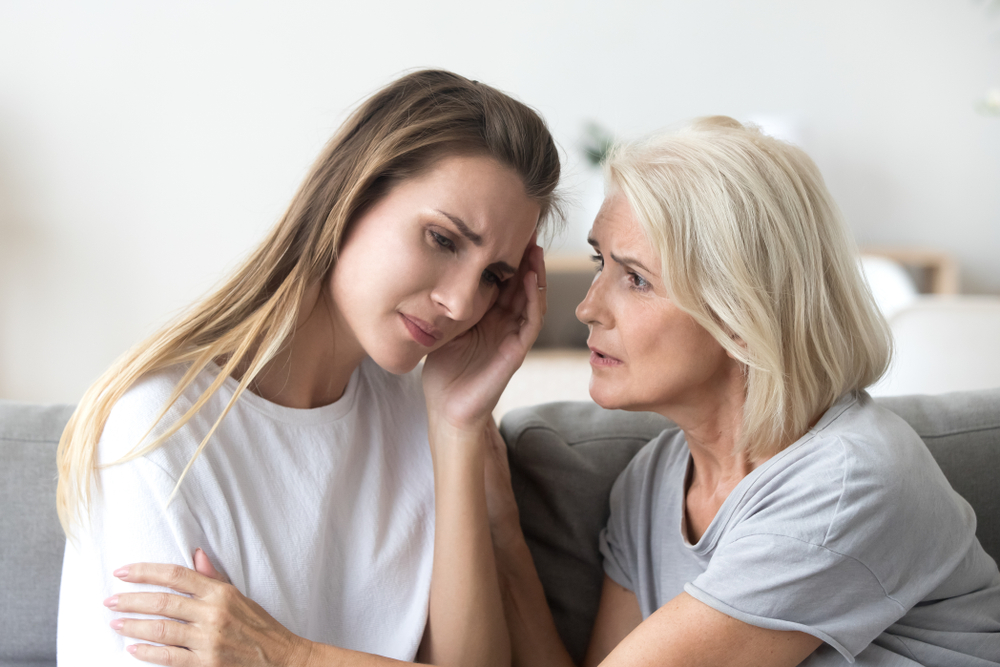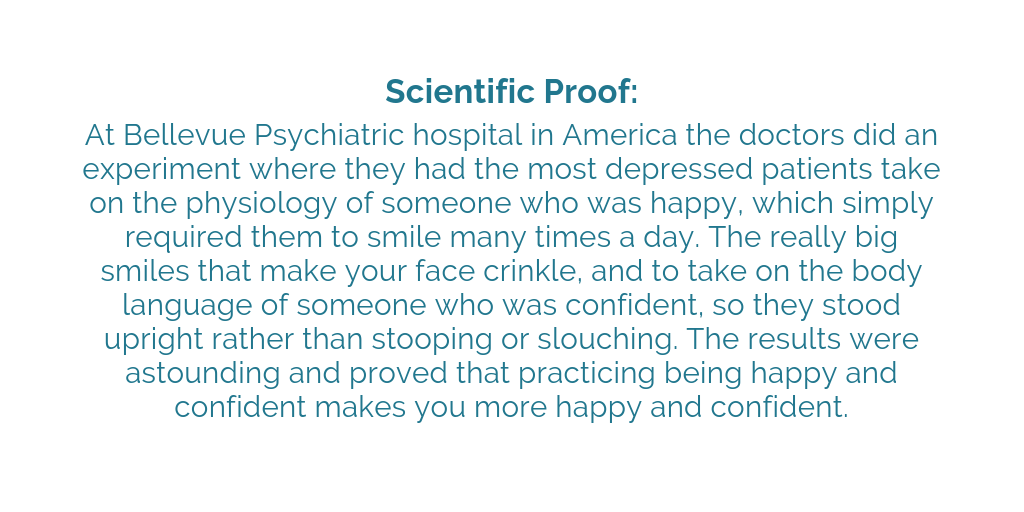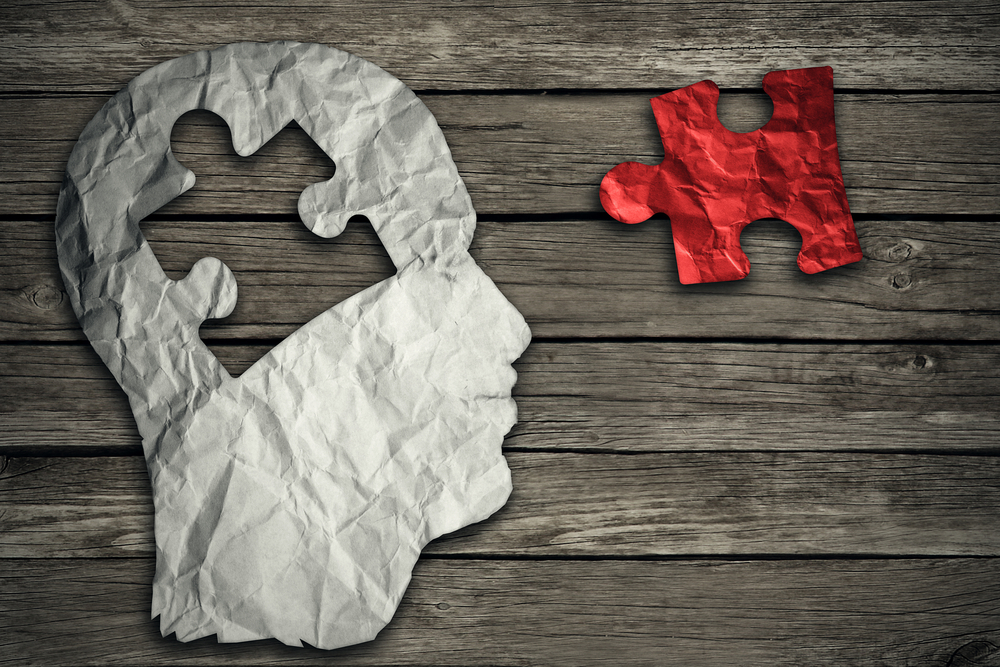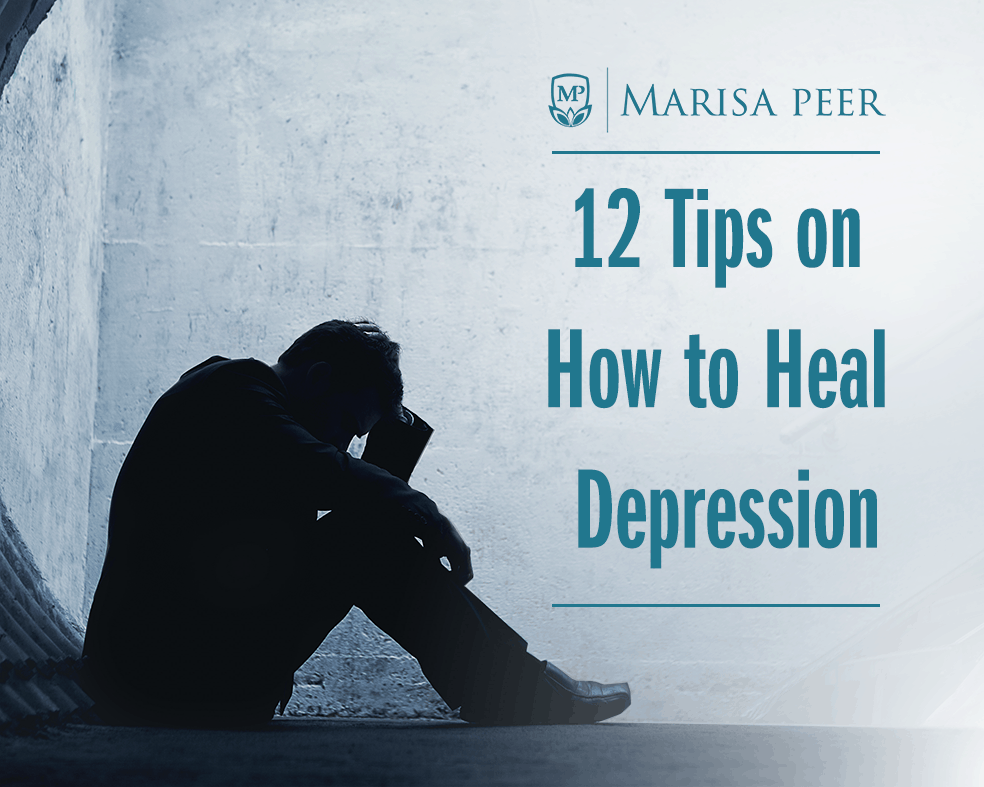Did you know that 1 in 4 of us will experience mental health issues this year?
Despite how common mental health issues are, people still feel stigmatised, alone or unsure of what to do to help. Your understanding, attitude and willingness to have a conversation around mental health could quite literally change someone’s life. Everyone needs to know that there is hope and there is help. I’m sharing 12 tips on how to heal depression, to give you the tools and resources to make a difference.
A Time to Change survey showed that 60% of people with mental health problems waited over a year to tell the people closest to them. Their research shows that up to 90% of people with mental health problems feel some form of stigma, from friends and family, at work, in education or during treatment. It shouldn’t be this way.

The stigma, silence and shame can be just as bad as the mental health problem itself. This is why taking Time to Talk can make such a difference.
Having a conversation about mental health can help:
1. Increase support and understanding
2. Improve relationships
3. Aid recovery
4. Breakdown stereotypes
5. Stop the stigma
Types of Mental Health Problems
There are various mental health problems, with different symptoms and diagnosis. These include amongst others:
– Anxiety Disorders
– Bipolar Disorder
– Depression
– Eating Disorders
– Obsessive Compulsive Disorders
– Personality Disorders
– Phobias
– Post Traumatic Stress Disorder
– Psychosis
– Schizophrenia
Organisations such as Mind and Rethink Mental Illness provide more information, support and advice. Mind also provides additional resources on what is a mental health problem, so you can feel more confident in your understanding around mental health and having a meaningful conversation when it matters most.
SPOTLIGHT ON DEPRESSION.
Depression is becoming more prevalent, especially in our busy, stressful, modern lives. We may be more digitally connected than ever before, but more disconnected from the things that matter most.
When we feel disconnected it’s like there is an empty void inside, a feeling like something’s missing. People often look for things to try to fill this emptiness – food, alcohol, drugs or addictive behaviour. However the only thing which can really fill the emptiness is a greater sense of meaningful connection, to ourselves and to others.
We are facing a disconnection epidemic.
It’s likely that either yourself or someone you know and care about will struggle with depression at some point in their lives. The good news is that with increased understanding and awareness, more people are opening up about the challenges and more importantly how to help. Here are my 12 tips on how to heal depression.
I speak from experience. No one needs to suffer in silence, help is always available.
I have been disconnected at times in my life, I was a single mother and really know what it’s like to feel that I have no one to turn to. But I came back from that and now have a great life full of meaning, purpose and connection, helping others achieve the same. We can show others how to be connected, by connecting ourselves.
I have dedicated my life to helping people master the power of their mind and I want to help you do the same with these 12 tips on how to heal depression.
I have helped thousands of clients gain freedom from depression and mental health problems with Rapid Transformational Therapy™, which gets to the root cause of emotional, physical or cognitive issues. I believe that when it comes to depression, we need to change our thinking, beliefs and behaviour to achieve lasting change.
Here are 12 tips to overcome depression from my book Ultimate Confidence.

1. Exercise even though you really may not want to. Exercise releases endorphins which promote well being and benefit our physical and mental health. You don’t have to go the gym every day, even going for a walk helps, and taking up yoga is particularly helpful. Another effective cure for depression is movement through dance or tai chi. Uplifting music can also have a very powerful effect on our moods. No matter how brief, any kind of movement and exercise will help.
2. Touch is very important in healing depression. Touch releases endorphins and the hormone oxytocin, so don’t become touch deprived. Stroke pets, hug friends and family, resume sex with your partner or have a massage. Sometimes you have to do the opposite of what you feel like doing to help you feel significantly better.

3. Diet can play a huge part in helping alleviate depression. Avoiding caffeine and sugar are particularly important as caffeine and sugar feed anxiety. Make sure you eat well and regularly, even if you have no appetite. Avoid all sweeteners as they can affect the brain and our moods in a very negative way. It is essential for our mental health that we eat good fats on a regular basis. Many people only eat bad fats like trans fats or saturated fats or try to avoid fat altogether. Make sure your diet has plenty of nuts and seeds, good oils like avocado, olives and oily fish or fish oil supplements.
4. A different perspective can help. Look into the future and know that it won’t last, it is not permanent, even though that may not seem possible at the time. Talk to other people who have felt so low and felt there was no way out only to have found that they fully recovered. Read positive examples of how people have overcome mental health issues and know it is possible for you too.

5. Smile and change your posture to change how you feel. When you regularly take on the physiology of a happy person, even though you may have to force yourself to do it, you will begin to feel happier. The more you practice being confident and happy, the more it will become your natural and automatic state. When you smile you make serotonin, which is known as the happy hormone, and this can dramatically change how you feel.

6. Supplement your vitamins to increase serotonin and happy hormones. A lack of vitamin B6 has been linked to depression, inertia, insomnia and irritability. A lack of vitamin B3 and vitamin D, which is made in the skin by sunlight, has also been linked to depression. These can easily be increased by taking fish oils. B12 deficiency and low levels of Omega 3 may also be an underlying factor in depression, so make sure you eat oily fish two or three times a week and take B6, B3, B12 and Omega 3 supplements.

7. Make sure you get outside every day as daylight and sunlight increase serotonin and is needed for vitamin D. Many night workers and shift workers can become depressed because of the lack of natural light.
8. Laughter is an important antidote to depression. Laughter releases endorphins and decreases stress hormones in the bloodstream, having a positive effect on our bodies. Many studies have shown if you consistently watch funny films you make different chemicals to the ones you make when you feel depressed. In his book ‘Anatomy of an illness’, Norman Cousins detailed how he rented funny films when he was very ill with cancer and watched them frequently, crediting laughter therapy as playing an essential part in his recovery.

9. Visualise your perfect outcome. Your mind is the most powerful tool you own. You can boost your immune system and make feel-good hormones just by changing the way you think. Use your imagination to communicate to your body what you want it to do. At the Rainbow Children’s Hospital in Cleveland USA an experiment was done whereby children watched a puppet show of a virus puppet fighting a policeman puppet who defeated the virus. After watching the puppet show the children closed their eyes and imagined lots of policeman puppets in their own bodies fighting their own viruses. Saliva samples were taken that showed that the children’s immune systems had reacted as if they really were actually fighting an infection and had made proteins to defeat the infection.

10. Do what you love. Evidence has shown that when people don’t follow their inner yearnings or do what they love, this can create depression. When people don’t take up the career they have a calling for, or a deep need to be involved in, this can lead to sadness, apathy and actual illness. So much depression is down to people not doing what they want to with their lives and suffering because of it.
I worked with a client who was deeply depressed and had been for years because she had always wanted to be a lawyer, but could never afford to attend law school. When she took early retirement she felt she had wasted her whole life. She could not get past the fact that she had missed out on working in the law. Eventually we decided that she could still do something about it and after volunteering in a legal aid centre, she did some training and became a magistrate. Finally she was working in a court doing what she loved and loving what she did – free of depression.
Another of my clients had always wanted to be a vet, but failed his veterinary exams and was asked to leave veterinary school. Since he only wanted to work with animals he felt lost. His depression closed in on him so he did not see any other options. Eventually, he trained to become an animal behaviour therapist and opened his own practice, he also worked on sets training dogs for commercials and television work and had a wonderful life that he enjoyed even more than if he had become a vet.
It’s never too late:
If you are depressed because you have not followed your heart’s desire it is never too late to do something about it. Even if you can’t make it your career, you can still make it a hobby. One of my clients had never had children and was full of regret and deep sadness, but eventually she decided to sponsor two children in Africa who she visited and wrote to regularly. While this was not the same as having her own child, it did help her feel that she had children in her life and that she was making a difference to them and to herself. Don’t live a life full of regrets about what you did not do, instead do something about it.

11. Therapy with the right therapist is incredibly helpful and you don’t need to spend years on a therapist’s coach. I developed Rapid Transformational Therapy™ to provide dramatic life-changing results and free clients from their issues in 1 – 3 sessions.
One of the ways in which Rapid Transformational Therapy™ gets fast and permanent results, is that it addresses the root cause and then looks at the role, function and purpose of the issue playing out. We learn to get our minds and bodies working for us, not against us. Our mind’s primary purpose is to try to protect us and keep us safe, to prevent us being at risk or in danger. Our symptoms are usually our body’s way of communicating with us that something needs addressing. I always say that understanding is power and the understanding gained through Rapid Transformational Therapy™ can have the most liberating transformative power to improve lives quickly and permanently.
12. Change your behaviour as well as your beliefs and thoughts.
Changing your thinking changes your feelings, but with depression it is essential that you also do some activities, because doing something that requires activity, no matter how small, can also change the depression. The way you think, act and the actions you take will change the way you feel.

Feelings follow behaviour, not vice versa. Therefore you must do what you don’t want to do to help with depression. Don’t wait until you feel better to take some action – do it now. Don’t wait for motivation or an improvement in mood before you take action, take action and you will become more motivated and get an improvement in mood.
Medication has its place, but doesn’t change the thought process that may have caused the depression in the first place. I believe that to change depression you must change your thinking as well as your actions.
Learning more about mental health problems may help you understand and feel more confident in talking to others. If you yourself are feeling like you may have a mental health problem, reach out and talk to someone. You are not alone and you do not have to suffer in silence. Knowing what you can do to help yourself, and when to seek and accept help from others, is the most empowering thing you can do.
Useful Featured Resources:
It’s time to change the way we think and act about mental health




